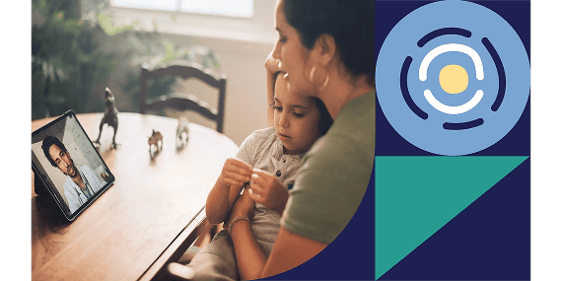In recent years, there has been a surge in the development of new technology aimed at improving women's health — often referred to as FemTech. From apps that track menstrual cycle to DNA tests that can determine the risk of developing certain diseases, these new tools are changing the way we think about women's health. Worldwide, millions of women are using them.[1] Here are five examples of how FemTech can positively support women and nonbinary people alike.
Early detection of breast cancer
One of the most important advances in FemTech is in breast cancer screening —breast cancer is the most prevalent cancer worldwide among women and is the second most common cancer overall.[4] Luckily, there are now several different technologies available that can help identify breast cancer at its earliest stages when it’s most easily treated.
These include everything from wearables that monitor changes in breast tissue density to AI-powered mammography machines that can spot early signs of cancerous growths. One company to look at is 4D Path.[5] Their breast cancer diagnostic and precision oncology platform aims to revolutionize cancer diagnostics. The Food and Drug Administration recently granted them a breakthrough designation for their novel cancer diagnostic solution.
DNA tests that measure risk of disease
One promising development in DNA research is its ability to provide women with insight into genetic risk of disease so they can make better informed decisions about their health. For example, there are now DNA tests available that can determine a woman's risk of developing various cancers or endometriosis.[6] PapSEEK, is a newer test that looks for mutations in 18 genes and aneuploidy — an abnormal number of chromosomes.[7] By getting this type of test, women can receive information to help them determine whether to get further genetic testing or to take preventative measures against diseases they may be at risk to develop in the future.
An at-home option is 23Pears™.[8] They offer an expanded carrier screening test that looks for 421 of the most common genetic conditions to help parents know their odds of passing one of these conditions on to their offspring.
Menstrual cycle tracking apps
FemTech is having a major impact in the realm of contraception. There are now several apps, Clue[9], Flo[10] or Ovia Fertility[11], for example, that are available to track menstrual cycles, provide biological insights and help people make more informed decisions about contraception and family planning. These apps can also provide valuable insights into a woman's overall health such as detecting early signs of ovulation or spotting potential irregularities in menstrual cycles.
However, it’s important to call out that the perception of this industry is shifting after the U.S. Supreme Court Dobbs decision. The loss of federal protection for reproductive rights has caused some women to delete their period tracker apps[10] out of the concern that health data used on these platforms could be used used by law enforcement to prosecute individuals.
And they’re not entirely wrong. Many of the FemTech app privacy policies do allow for the disclosure or sale of health information to industry partners, data brokers and researchers.[11] And unfortunately this discourages women from using these products designed specifically to support their needs. However, there are still many advances in this industry that are having a major impact on healthcare for women and can positively support them.
Reproductive health wearables
In addition to apps, several wearable technologies also aim to improve reproductive health. For example, there are now fertility tracking bracelets that help women who are trying to conceive by providing real-time data about fertility levels. There are also new monitoring devices being developed for pregnant people that aim to provide insights into the baby's health and development during pregnancy. Existing technology like the Apple watch or WHOOP strap have added these features to support this population, as well.
Bridging the gaps in women and nonbinary people’s healthcare
FemTech presents an opportunity to bridge gaps in healthcare for women and nonbinary people. Some of these gaps and disparities include:
-
Family planning
-
Transgender sexual and reproductive care
-
Menstruation
-
Menopause
-
Sexually transmitted diseases
Femtech companies are utilizing community health needs assessments and surveys. By doing so, they can examine the gaps in this population’s sexual and reproductive health offerings to ensure they are supporting their entire population.[12]
It might be alarming to learn that people who identify as women are 25% less likely than men to receive pain relief when they go to their doctor with concerns of chronic pain. [13] They are more likely to be described as “psychogenic” or “emotional” by their healthcare provider.[14] Syrona Health is a company that supports navigating health-transitions within the workplace. Their goal is to help women, transgender and non-binary people take charge of their bodies through science, compassion and technology. They do this by providing health tracking, virtual health support, and hormone and genetic kits through their certified medical app.[15]
A holistic approach to women’s healthcare
With all of these advances in technology, it's important to remember that women's healthcare is not just about treating disease — it's also about prevention and wellness. That's why many FemTech startups are taking a holistic approach to women's health, focusing on everything from fitness and nutrition to mental health and stress management. By taking this comprehensive approach, they hope to improve not just the physical health of their users but also their overall wellbeing.
[2] https://www.indy100.com/news/period-tracker-app-roe-wade
[4] https://canceratlas.cancer.org/the-burden/the-burden-of-cancer/
[6] https://www.ncbi.nlm.nih.gov/pmc/articles/PMC6832724/
[7] https://www.ncbi.nlm.nih.gov/pmc/articles/PMC6320220/
[8] https://www.miteraperinatal.com/23pears/
[10] https://flo.health/
[11] https://www.oviahealth.com/apps/
[13] https://pubmed.ncbi.nlm.nih.gov/18439195/
[14] https://digitalcommons.law.umaryland.edu/cgi/viewcontent.cgi?article=1144&context=fac_pubs





